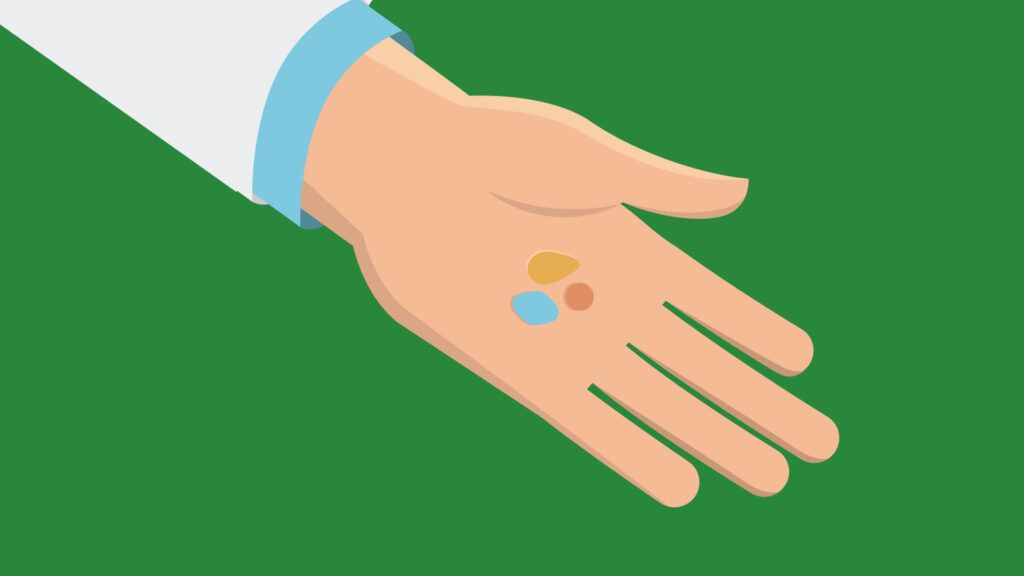Treating erectile dysfunction using Viagra

Erectile dysfunction (ED) is a common condition that affects many men worldwide. It can have a significant impact on one’s quality of life and relationships. Fortunately, there are various treatments available, and one of the most well-known and widely used options is Viagra.
Understanding Erectile Dysfunction
Erectile dysfunction, also known as impotence, refers to the inability to achieve or maintain an erection that is firm enough for sexual intercourse. This condition can be caused by a variety of factors, both physical and psychological.
When it comes to physical causes, underlying health conditions play a significant role. For instance, diabetes can damage the blood vessels and nerves that are essential for a healthy erection. High blood pressure and heart disease can also affect blood flow, making it difficult to achieve and sustain an erection. Additionally, obesity, which is often associated with poor cardiovascular health, can contribute to erectile dysfunction.
It’s important to note that medications can also be a culprit. Certain drugs used to treat high blood pressure, depression, and anxiety can have side effects that interfere with sexual function. Hormonal imbalances, such as low testosterone levels, can also contribute to erectile dysfunction.
Psychological factors can also play a significant role in the development of erectile dysfunction. Stress, anxiety, and depression can all affect sexual performance. The pressures of work, relationships, and daily life can take a toll on a man’s ability to achieve and maintain an erection. It’s crucial to address these psychological issues and seek appropriate support to overcome them.

Causes of Erectile Dysfunction
ED can be caused by underlying health conditions such as diabetes, high blood pressure, heart disease, and obesity. It can also be a result of certain medications, hormonal imbalances, or psychological issues like stress, anxiety, or depression.
When it comes to diabetes, the condition can lead to nerve damage and poor blood flow, both of which are essential for a healthy erection. High blood pressure and heart disease can affect the blood vessels, making it difficult for blood to flow into the penis and create an erection. Obesity, on the other hand, can contribute to erectile dysfunction by increasing the risk of cardiovascular problems and reducing overall blood flow.
Medications can also have a significant impact on sexual function. Antidepressants, for example, can affect the brain chemicals that regulate sexual desire and arousal. Blood pressure medications can interfere with blood flow, making it challenging to achieve an erection. It’s essential to consult with a healthcare professional if you suspect that your medication may be contributing to your erectile dysfunction.
Hormonal imbalances, such as low testosterone levels, can also play a role in erectile dysfunction. Testosterone is a hormone that plays a crucial role in sexual function, and a deficiency can affect a man’s ability to achieve and maintain an erection. It’s important to consult with a healthcare professional to determine if hormonal imbalances are contributing to your erectile dysfunction.
Psychological factors, such as stress, anxiety, and depression, can also contribute to erectile dysfunction. Stress, whether related to work, relationships, or other aspects of life, can affect sexual performance. Anxiety about sexual performance can create a vicious cycle of worry and erectile difficulties. Depression, which affects mood and overall energy levels, can also impact sexual desire and function. Seeking appropriate support, such as therapy or counseling, can help address these psychological factors and improve sexual function.
Symptoms and Diagnosis of Erectile Dysfunction
The main symptom of ED is difficulty in achieving or maintaining an erection. Other symptoms may include reduced sexual desire or decreased sexual satisfaction. It is essential to consult a healthcare professional for a proper diagnosis, as they can evaluate your symptoms and medical history to determine the underlying cause of your ED.
During a diagnosis, the healthcare professional will ask about your medical history, including any underlying health conditions or medications you are currently taking. They may also inquire about your sexual history and any psychological factors that may be contributing to your erectile dysfunction. In some cases, a physical examination may be performed to check for any physical abnormalities or signs of underlying health conditions.
In certain situations, additional tests may be necessary to determine the cause of erectile dysfunction. These tests may include blood tests to check hormone levels, ultrasound to evaluate blood flow, or a nocturnal erection test to assess erections that occur during sleep. These tests can help provide a more comprehensive understanding of the underlying factors contributing to your erectile dysfunction.

An Overview of Viagra
Viagra, also known by its generic name sildenafil, is a prescription medication designed to treat erectile dysfunction. It belongs to a class of drugs called phosphodiesterase type 5 (PDE5) inhibitors.
Erectile dysfunction (ED) affects millions of men worldwide and can have a significant impact on their quality of life. It is characterized by the inability to achieve or maintain an erection that is firm enough for sexual intercourse. This can lead to frustration, anxiety, and a strain on relationships.
Fortunately, medications like Viagra have revolutionized the treatment of ED, providing men with a safe and effective solution to their sexual health concerns.
What is Viagra?
Viagra works by increasing blood flow to the penis, which helps to achieve and maintain an erection. It does this by inhibiting the enzyme PDE5, which can interfere with the natural process of getting an erection.
When a man is sexually aroused, the brain sends signals to the nerves in the penis, triggering the release of chemicals that relax the smooth muscles and increase blood flow to the erectile tissue. This results in an erection.
However, in men with ED, the PDE5 enzyme breaks down the chemical messenger called cyclic guanosine monophosphate (cGMP), which is responsible for relaxing the smooth muscles and allowing blood to flow into the penis. By inhibiting PDE5, Viagra helps to maintain higher levels of cGMP, resulting in improved blood flow and a firmer erection.
It is important to note that Viagra is not an aphrodisiac and does not increase sexual desire. It only works in the presence of sexual stimulation, allowing men to achieve and maintain an erection when they are sexually aroused.
How Does Viagra Work?
When a man is sexually stimulated, nitric oxide is released in the erectile tissue of the penis. This causes an increase in the levels of cyclic guanosine monophosphate (cGMP), which relaxes the smooth muscles, allowing blood to flow into the penis. By inhibiting the PDE5 enzyme, Viagra helps to maintain higher levels of cGMP, resulting in improved blood flow and a firmer erection.
Viagra is usually taken orally, in the form of a tablet, and is typically prescribed in a dosage strength that is tailored to each individual’s needs. It is important to follow the prescribed dosage and instructions provided by a healthcare professional.
The effects of Viagra can be felt within 30 minutes to an hour after taking the medication, and the duration of its effects can vary from person to person. It is generally recommended to take Viagra on an empty stomach, as fatty foods can delay its absorption and reduce its effectiveness.
It is worth noting that Viagra may not be suitable for everyone. It is important to consult with a healthcare professional before starting any new medication, especially if you have any underlying medical conditions or are taking other medications.
In conclusion, Viagra is a widely used medication for the treatment of erectile dysfunction. By increasing blood flow to the penis and inhibiting the PDE5 enzyme, it helps men achieve and maintain an erection. However, it is important to use Viagra as prescribed and consult with a healthcare professional for personalized advice and guidance.

The Role of Viagra in Treating Erectile Dysfunction
Viagra has been widely studied and proven to be an effective treatment for erectile dysfunction. It has helped countless men regain their ability to achieve and sustain an erection during sexual activity.
Effectiveness of Viagra
Various clinical trials have shown that Viagra can improve erectile function in men with different underlying causes of ED. It has been found to be effective in men with diabetes, prostate surgery, or psychological factors. However, it is important to note that Viagra is not a cure for ED but rather a temporary solution that can enhance sexual performance.
How to Use Viagra for Best Results
It is essential to follow the prescribed dosing instructions provided by your healthcare provider. Viagra is typically taken orally about 30-60 minutes before sexual activity. The effects usually last for about four to six hours. It is important to note that Viagra should not be taken more than once a day.
Potential Side Effects and Risks of Viagra
While Viagra is generally well-tolerated, like any medication, it can have side effects and risks. Most side effects are mild and temporary, but some may require medical attention.
Common Side Effects
The most common side effects of Viagra include headache, facial flushing, nasal congestion, indigestion, and dizziness. These side effects typically subside on their own as the body adjusts to the medication.
Serious Side Effects and Warnings
In rare cases, Viagra can cause more severe side effects, such as blurred vision, sudden vision loss, priapism (an erection lasting more than four hours), chest pain, or difficulty breathing. If you experience any of these symptoms, seek immediate medical attention.
Alternatives to Viagra for Erectile Dysfunction
While Viagra is a popular and effective treatment for ED, it may not be suitable for everyone. Fortunately, there are other alternatives available for those who cannot or prefer not to use Viagra.
Other Medications for Erectile Dysfunction
There are other PDE5 inhibitors available on the market, such as Cialis and Levitra, which work in a similar way to Viagra. These medications may have slightly different effectiveness and side effect profiles, so it is essential to discuss with your healthcare provider to find the best option for you.
Natural Remedies and Lifestyle Changes
In addition to medications, there are lifestyle changes and natural remedies that may help improve erectile function. These include maintaining a healthy weight, exercising regularly, managing stress levels, and avoiding excessive alcohol consumption or smoking. Some herbal supplements, such as ginseng or L-arginine, have also shown promise in improving erectile function, but their effectiveness has not been extensively studied.
In summary, Viagra is a widely used and effective treatment for erectile dysfunction. It works by increasing blood flow to the penis, helping men achieve and maintain an erection. However, it is crucial to consult with a healthcare professional to determine the underlying cause of your ED and discuss the most suitable treatment options. Viagra may have potential side effects and is not appropriate for everyone, so it’s essential to weigh the benefits and risks before starting any medication. Additionally, lifestyle changes and natural remedies can complement medical treatments and improve overall sexual health.
